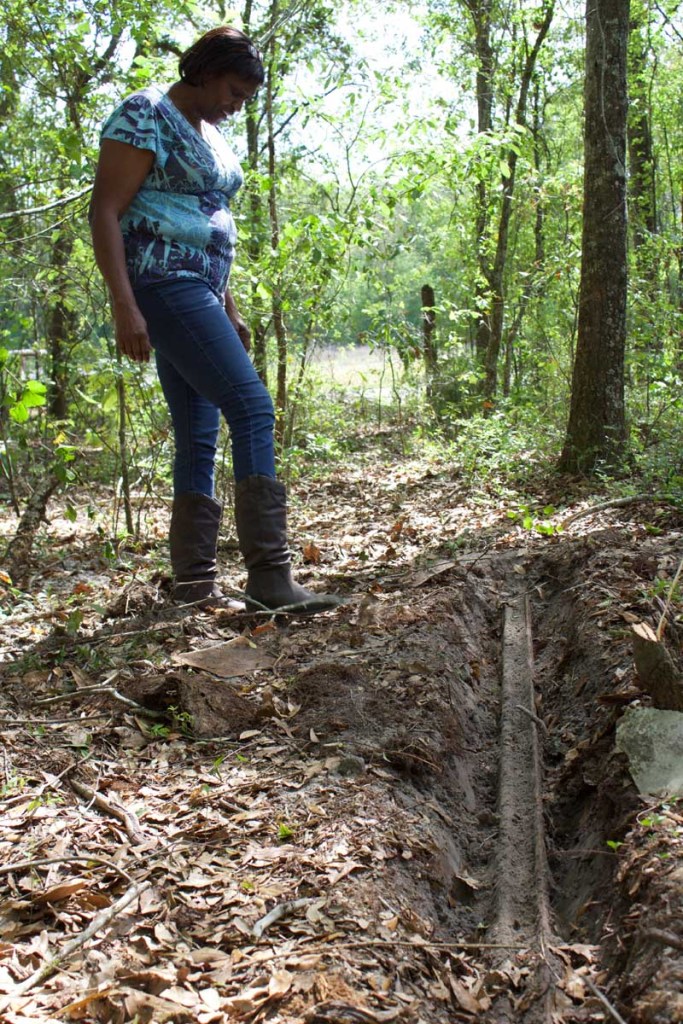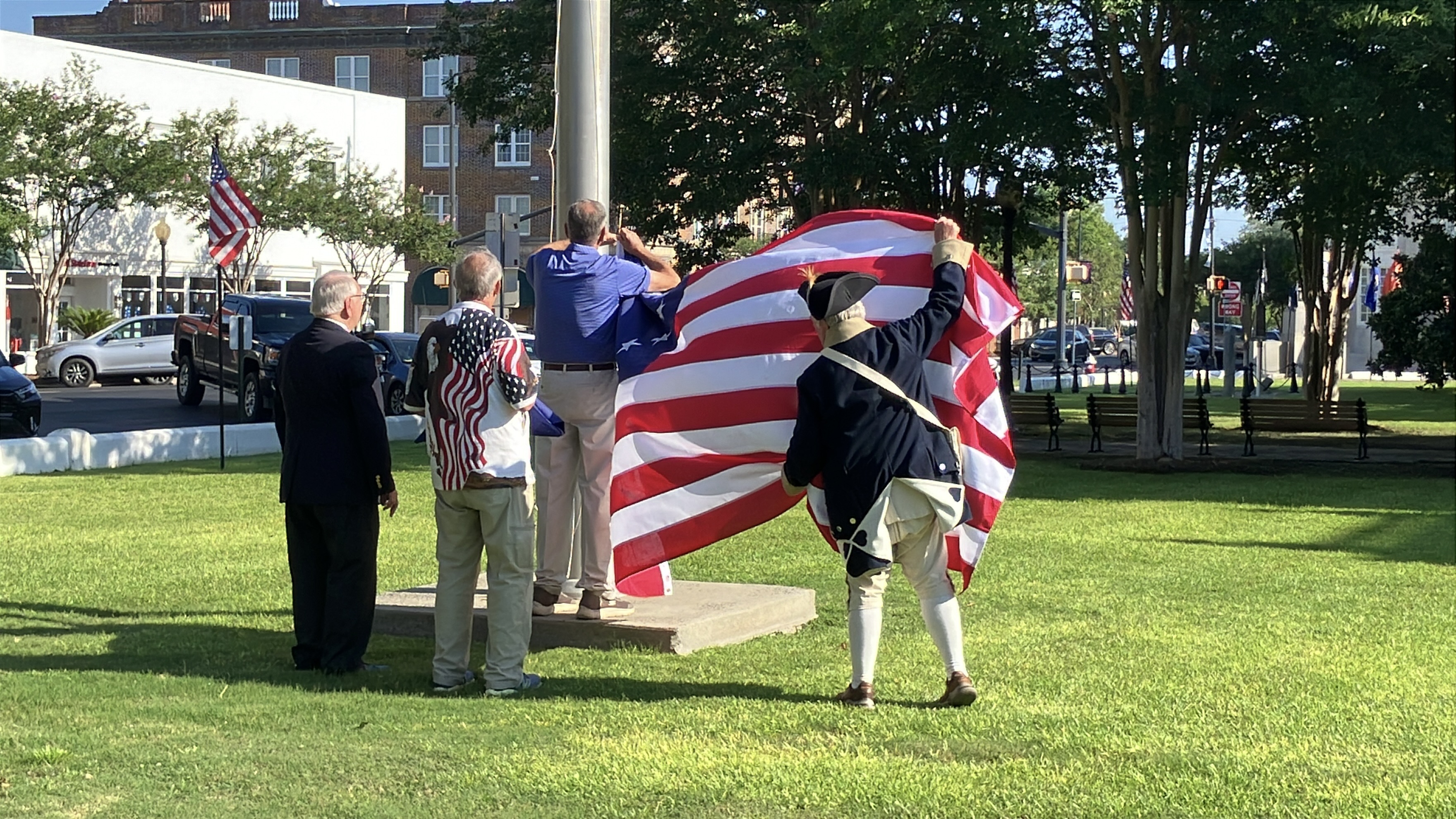More than 100 years of history: Mitchell uncovers family’s past
Published 9:00 am Monday, May 1, 2017

- Mitchell said she was overwhelmed when she found the old railroad on her family's property.
LIVE OAK — Pat Hines Mitchell and her family owe a lot to their great, great, great grandfather.
Christmas Hemming was born sometime in the early 1800s in Florida and lived most of his life as a slave. At some point, however, after the Civil War, Hemming came to Live Oak and bought 640 acres for $1,100.
Trending
“For him to go up to a white man in that time, with that money, and ask him to buy a piece of land is phenomenal right by itself,” Mitchell said. “It’s crazy enough that he didn’t get beat down just for having $1,000.”
Mitchell and her family still own and live on 160 acres of the land Hemming purchased more than 100 years ago. Mitchell has been doing her own research into her grandfather for more than a year now, trying to uncover how a newly freed slave could have achieved so much.
She found out that Hemming bought the property from Charles T. Irvine, who is the namesake for Irvine Street in Suwannee County and the road the land is adjacent to. Hemming also sold pieces of land to the school board and to a railroad company.
Mitchell has copies of all these sales in a binder. On each paper there is an ‘X’ written for Hemming, who couldn’t write his name.
“For a man who could only write an ‘X’ he accomplished a lot,” Mitchell said. “He did a lot with that ‘X.”
Mitchell is a part of the Suwannee Valley Genealogy Society, and after she learned that her grandfather sold land to a railroad, she teamed up with Jennings Bunn to go looking for the old railroad on her family’s land.
Trending
“I went out there with my metal detector, and we’d been out here several times looking, but when we actually found it, well, to say the least, we were pretty excited,” Bunn said.
Mitchell said she grew up hearing stories of her grandfather and the railroad that used to cut through the land. She said she couldn’t explain why it was so important to find the railroad and have proof, something tangible that connected her to Hemming.
“It blew my mind,” Mitchell said. “I spent all evening crying about it. I was so overwhelmed.”
She and Bunn dug up a long, rusted piece of railroad track out behind a relatives property, located between a pig pen and a sugar cane field. Mitchell said she plans on looking for more rail and taking this piece back to her land as a display.
She collects many old things in her house, including old flat irons she keeps near her fireplace. She also has a collection of railroad spikes she found.
Mitchell’s grandfather isn’t the only one making history. She was the first black woman, and the first black person, to work in Suwannee County as an Emergency Medical Technician (EMT). During that time she faced racial discrimination that puts into context just how difficult it must have been for her grandfather more than 100 years ago.
“I was working in the 80s, and I had my fair share of hate. I can’t even imagine what he had to go through,” Mitchell said.
When she was an EMT, she was dispatched to a rescue call to a private residence where she encountered an “Archie Bunker” type, she said. When he observed that she was not white, he made a racial remark about it.
Mitchell said she smiled at him and assured him that she was well qualified and capable of taking care of him, but if he would postpone his heart attack until the next shift, she was certain the EMT on the next shift would be white.
After carefully considering his options, he was more than happy to accept her services. When the patient recovered, he and his wife submitted a letter of commendation on Mitchell’s behalf and she was recognized by the Suwannee County Board of County Commissioners for her work that day.
She keeps a framed copy of the newspaper that has that story in it. Mitchell said it’s important to remember who you are and to pass that information on to the next generation. That’s why she has been doing all this research into her great, great, great grandfather, she said.
“I want people to know that African Americans contributed to this county and history,” Mitchell said. “There are some parts of history that people never find out about, but knowing who you are, where you came from, gives you a sense of direction, a sense of belonging, a sense of purpose.”
Since she starting looking into her past, Mitchell said she has found a greater purpose in her life, like it has been a longer journey than just her life. That it stretches back through time.
“I keep thinking back to that ‘X,’” she said. “Even though he didn’t have knowledge, he knew he wanted to leave something for his family, and that maybe, somebody down the road, would find out how much he cared about his family.”





